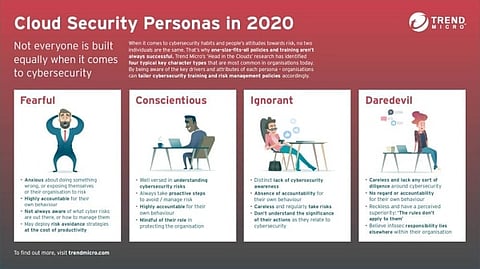

Trend Micro Incorporated, a global leader in cybersecurity solutions, today released survey results that show how remote workers in Saudi Arabia approach cybersecurity. While 83% of remote workers in the Kingdom say they understand their responsibilities towards their organisation's cybersecurity during the lockdown , many are breaking the rules anyway, due to limited understanding of threats or resource constraints.
Trend Micro's Head in the Clouds study surveyed nearly 13,200 remote workers across 27 countries to gain insights into their attitudes towards corporate cybersecurity and IT policies. The learnings show there has never been a better time for Saudi companies to take advantage of heightened employee cybersecurity awareness.
Some 83% of Saudi Arabia-based respondents believe they have a responsibility to keep their organisation secure; despite only half (51%) acknowledging the importance of following advice from the IT team.
One in five (19%) would opt for the quickest method to send a file to an external party; even if it is not the most secure means. More than a quarter (26%) admitted to clicking links on unknown emails; while using a work device and 69% protect their main personal device with just a password.
The responses suggest that just because most people understand the risks, does not mean they stick to the rules. It can also be deduced that productivity wins out over protection for many users.
"As we move increasingly towards remote-working models to protect employees and their loved ones from a global public-health crisis; we must never forget that the threat landscape will show no such compassion", said Dr. Moataz Binali, vice president, Trend Micro, Middle East and North Africa.
"While we can take a certain amount of solace from enhanced awareness of security issues brought about by the new normal; we can see that some are still engaging in risky behaviours for the sake of convenience. Once again, we are bound by the simple fact that we must tailor awareness programmes and policies to better training our workforce; just as we must tailor our security postures to face external threats."
The Head in the Clouds study looks into the psychology of people's behavior in terms of cybersecurity; including their attitudes towards risk. It presents several common information-security "personas"; with the aim of helping organizations tailor their cybersecurity strategy in the right way for the right employee.
